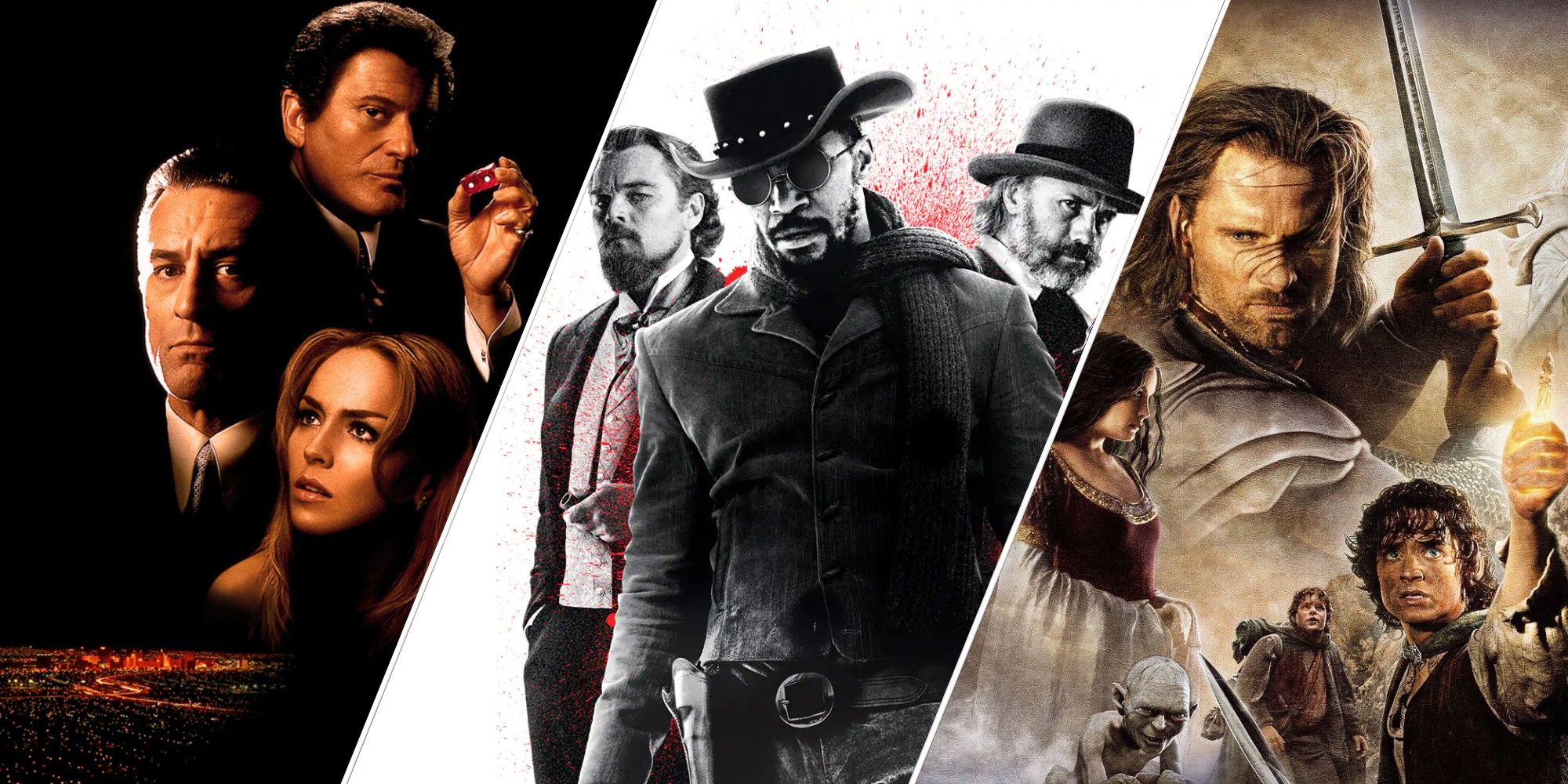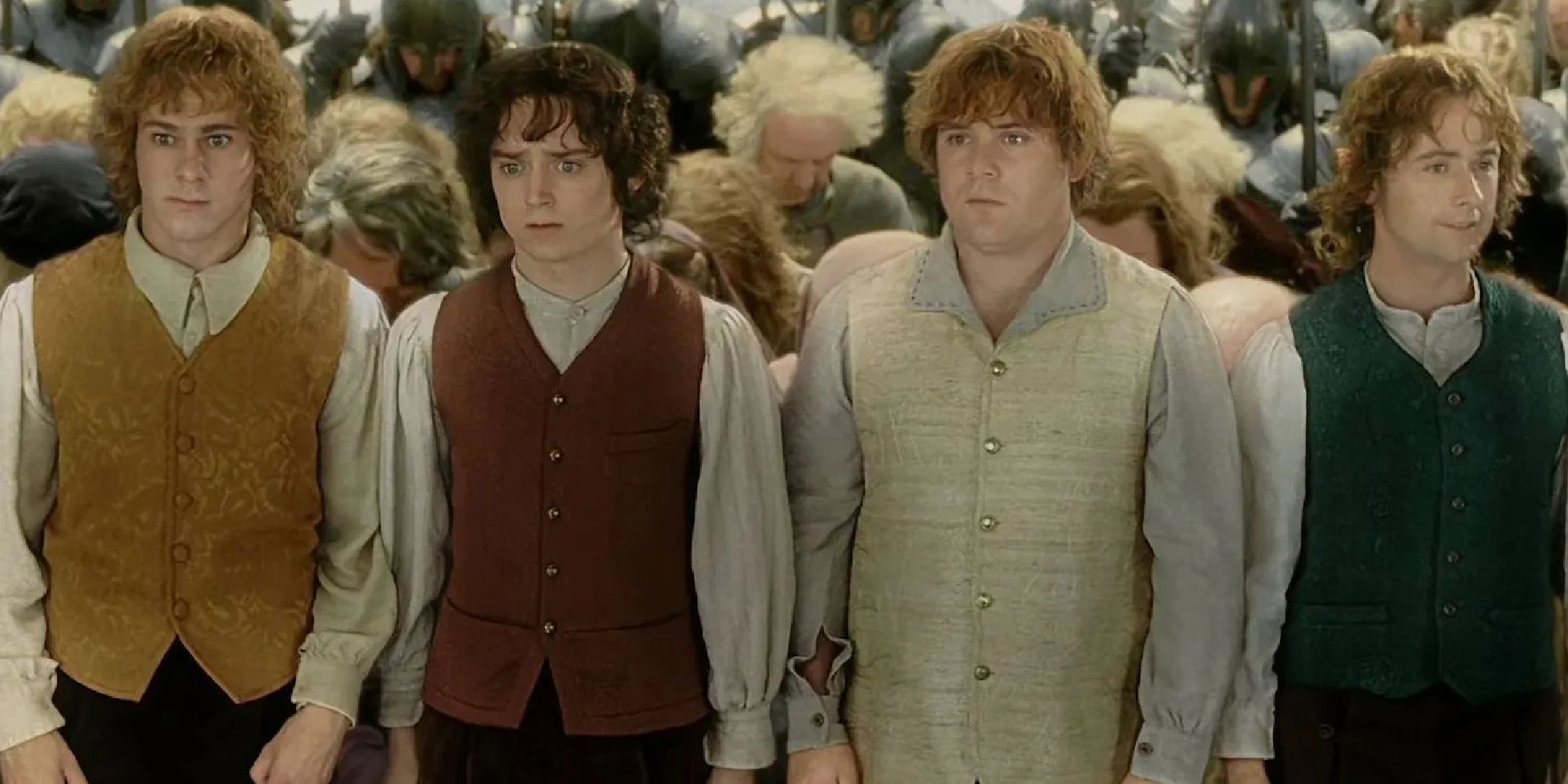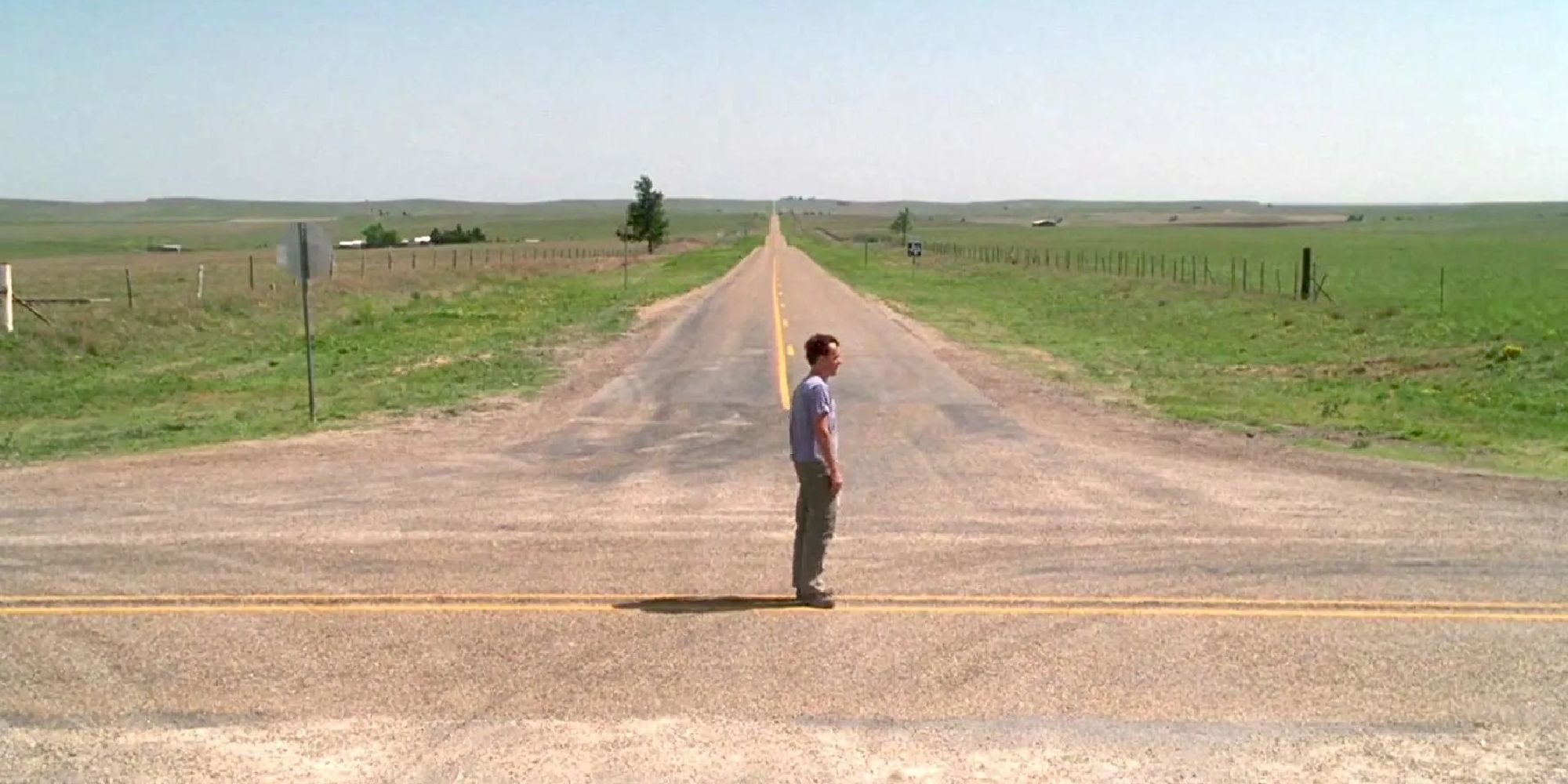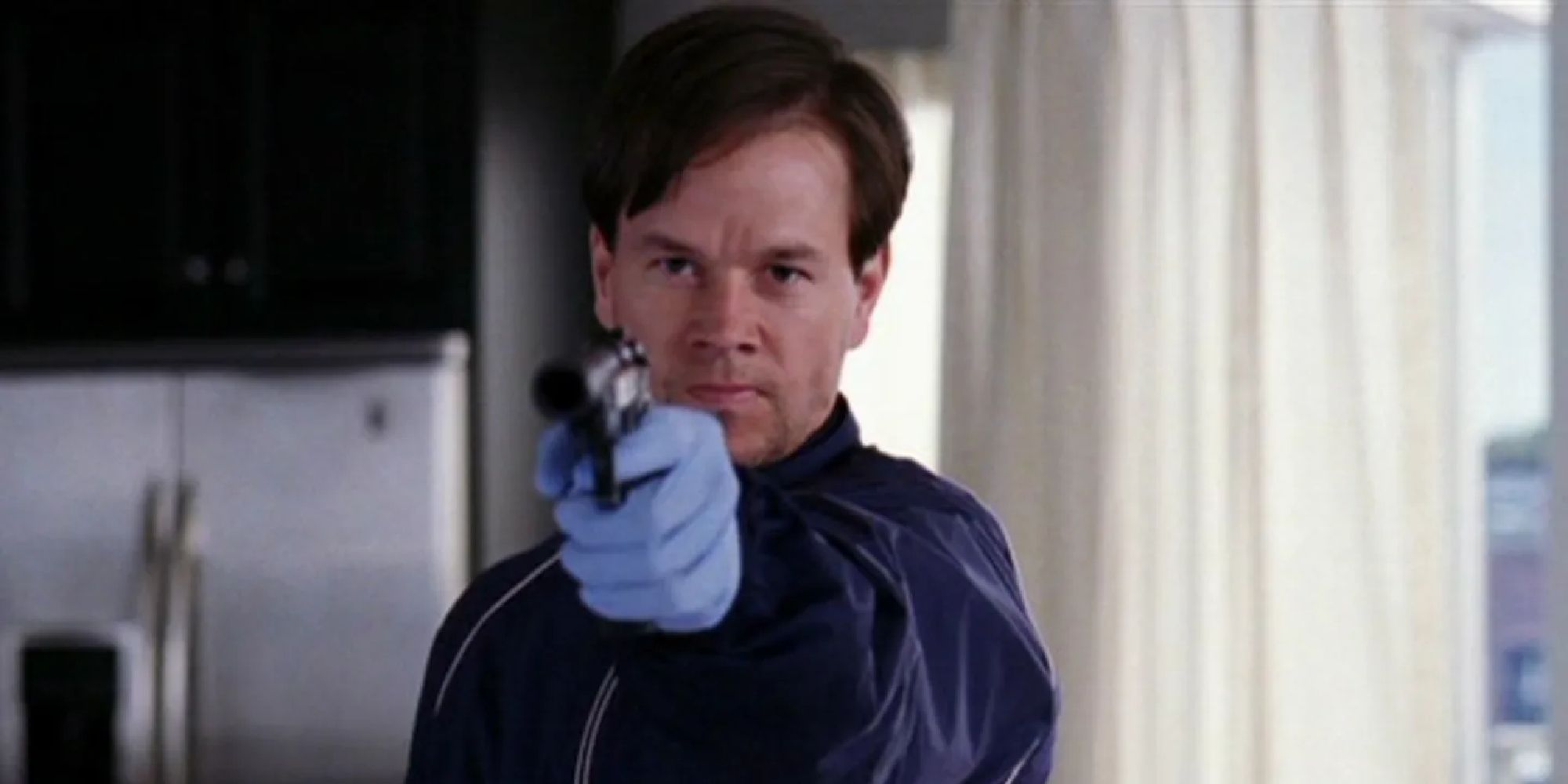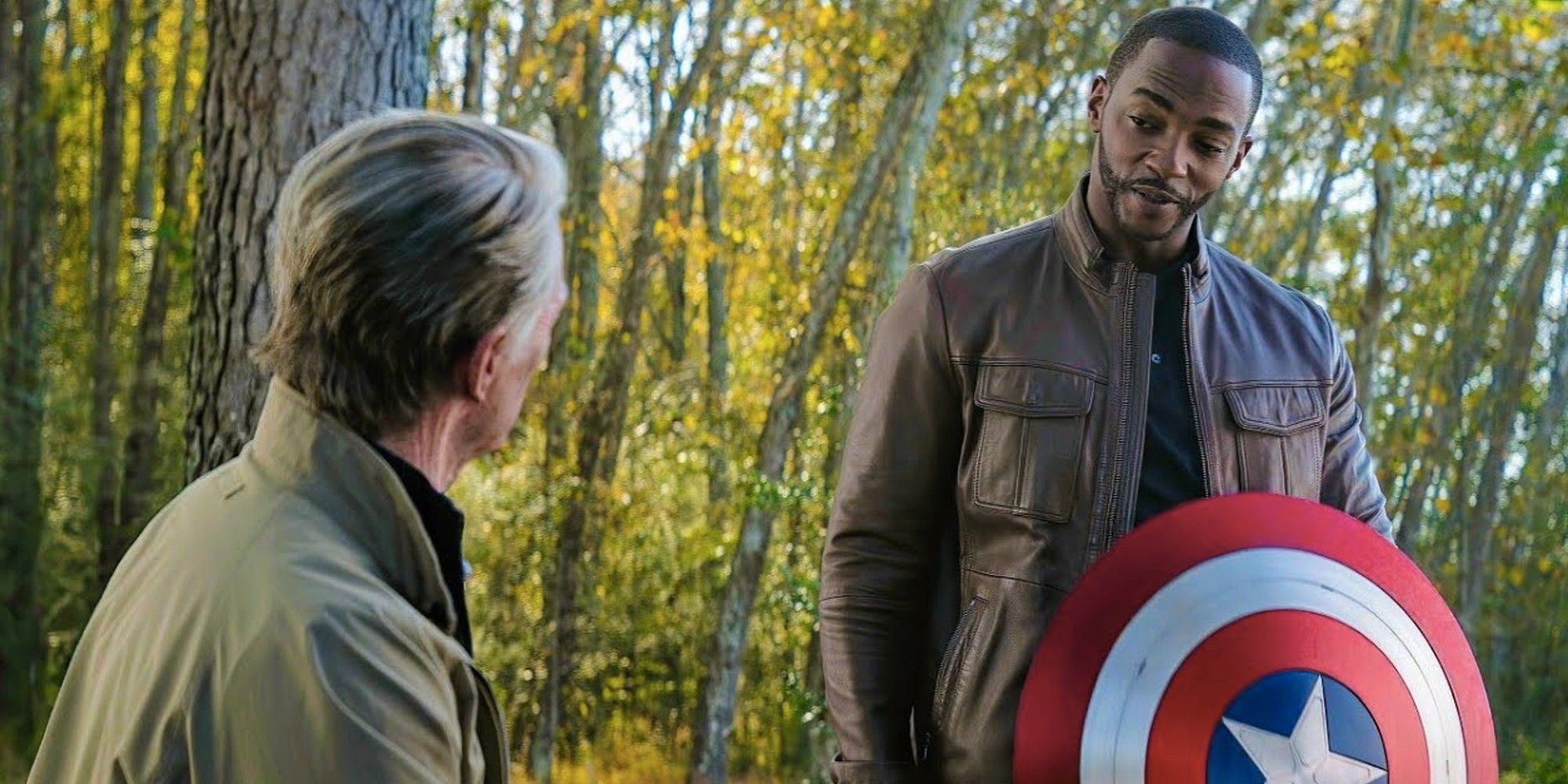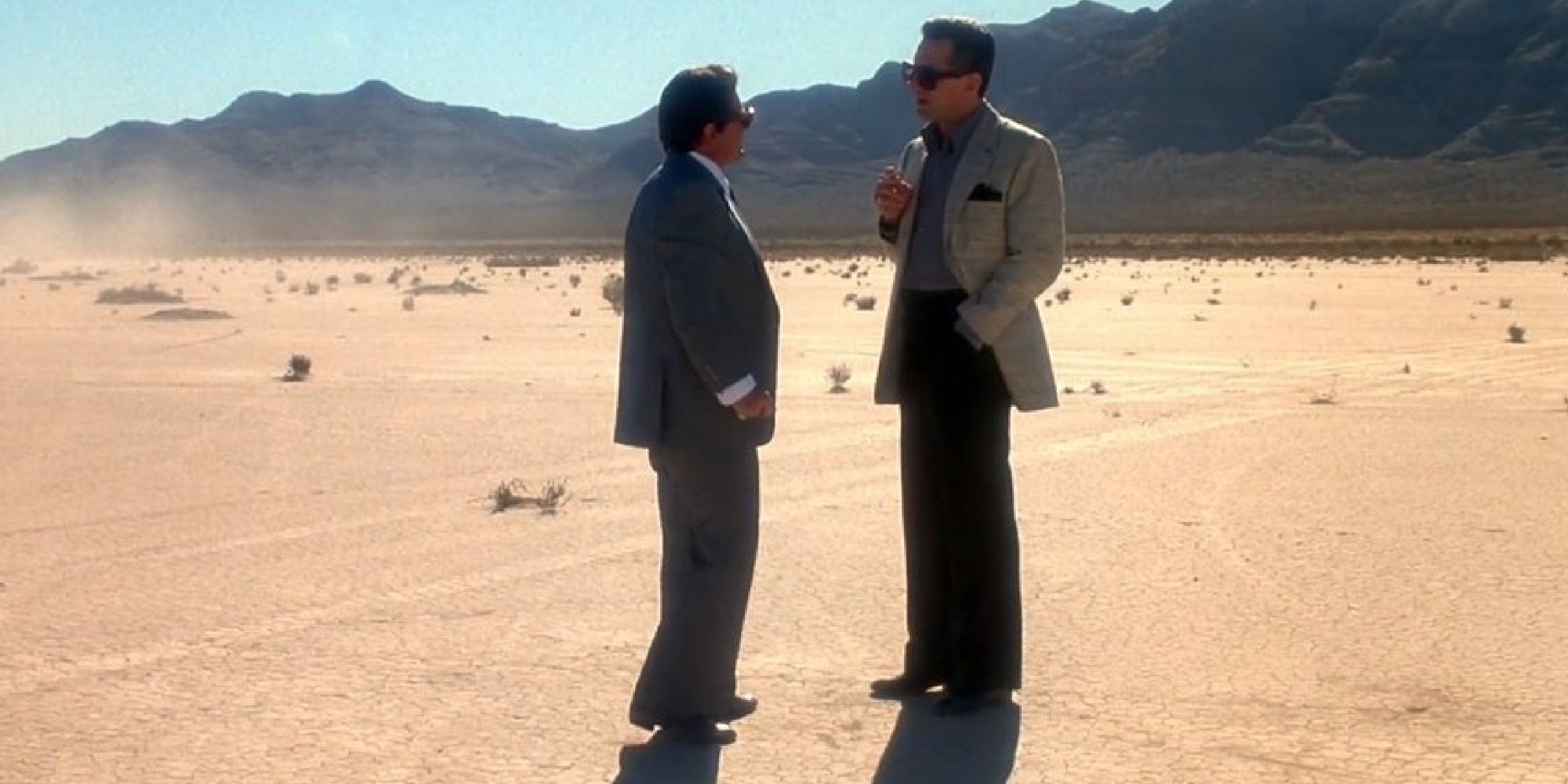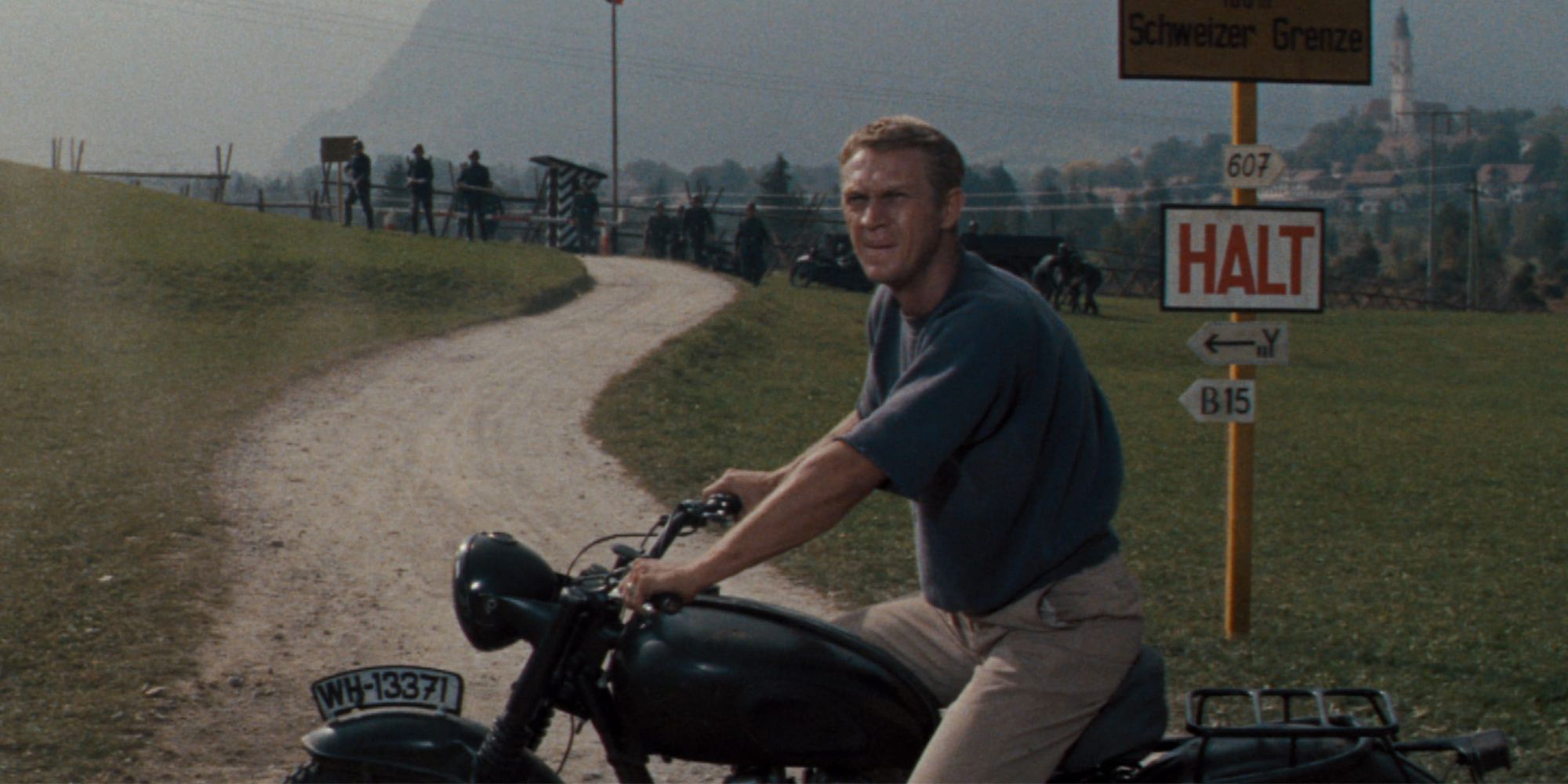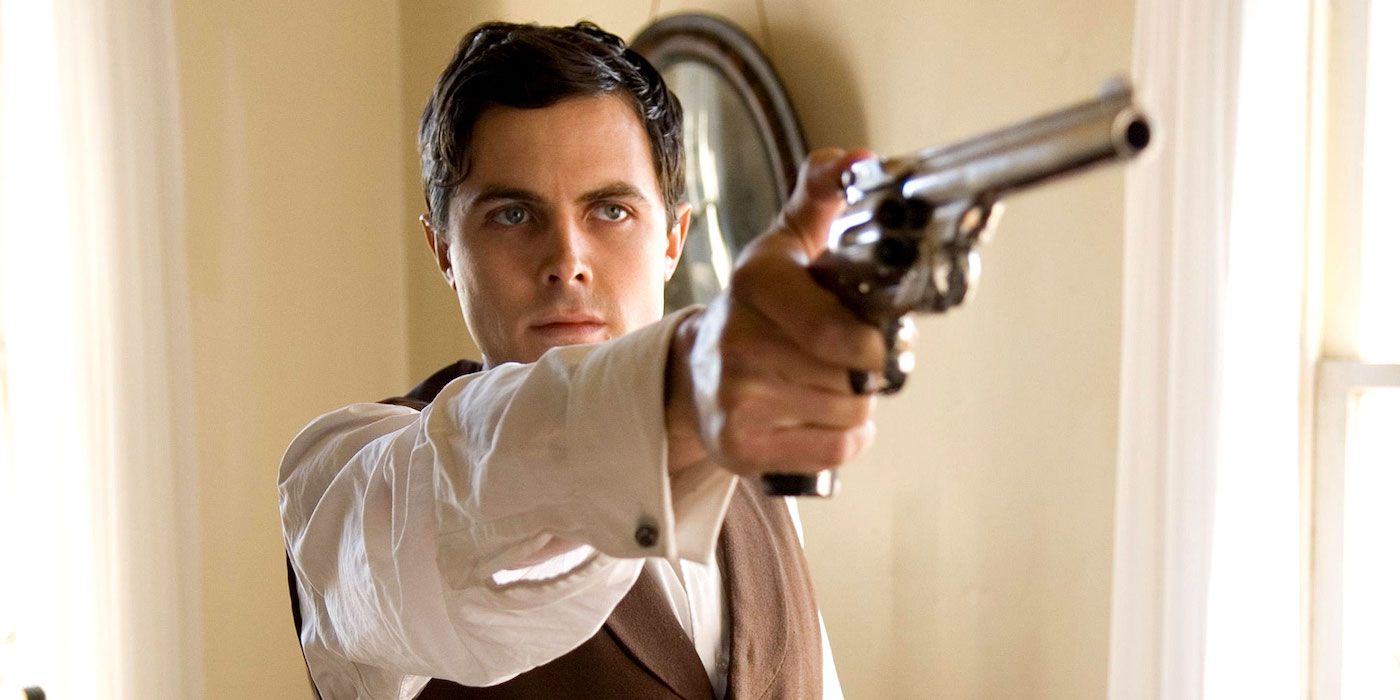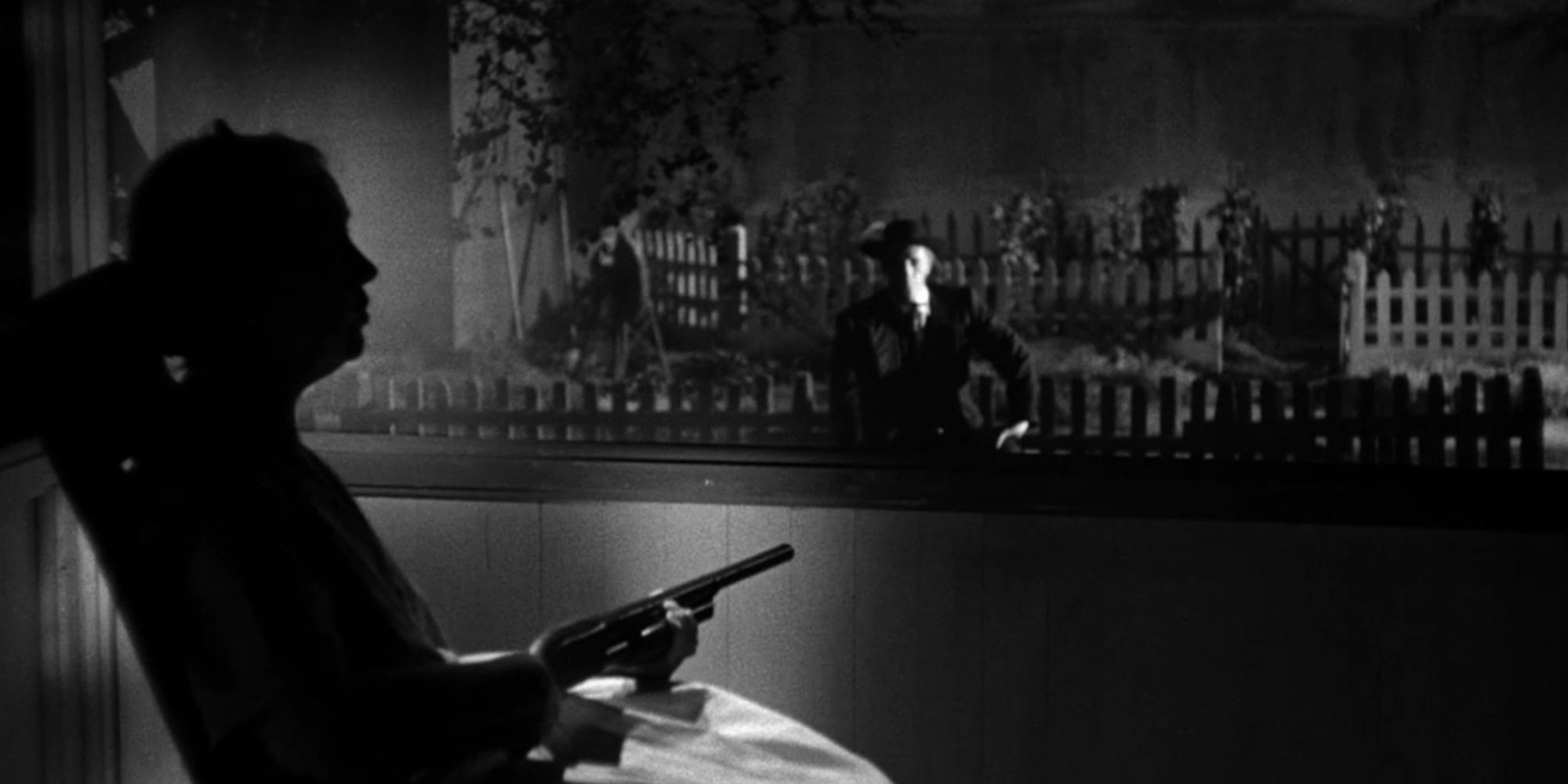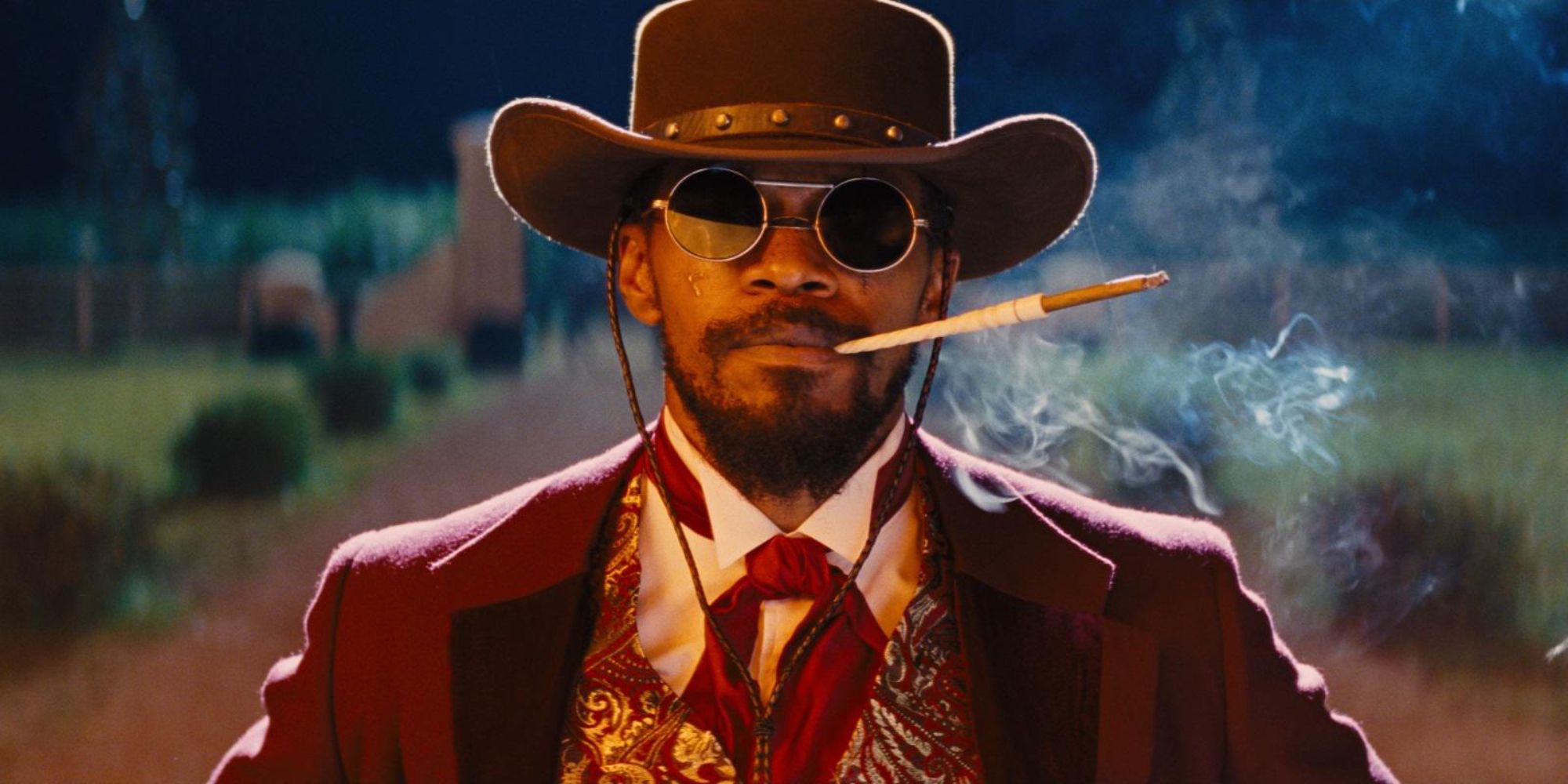It's a necessary evil for long movies to have long conclusions. If a filmmaker has numerous characters, story threads, or subplots to tie up, it can be essential to address them all in a movie's closing scenes, which ensures there are as few things left hanging as possible.
Like most film-related trends, some uses of drawn-out endings work or are at least forgivable, while others can feel detrimental to what's come before. The following 10 movies tend to be quite long, and therefore have long, sometimes drawn-out endings. Some endings below work, but others may test your patience, because while saying goodbye can be hard, sometimes it's better to just get it over with.
The following list will discuss the endings of the films below.
'The Lord of the Rings: The Return of the King' (2003)
Out of the three movies in the Lord of the Rings trilogy, The Return of the King is the longest by a good quarter of an hour. It's also the only one of the three that won Best Picture at the Oscars, perhaps because it was the biggest and most epic of the trilogy, serving as a climax and definitive conclusion to the nine-hour-long, three-part film series.
Saying it had one ending might be inaccurate, because The Return of the King is somewhat notorious for featuring several scenes that all feel like final scenes, one after the other. It might not be as drawn out as some make it out to be, and there are nine hours of story to wrap up, instead of the usual two hours that most movies have to conclude, which makes the series of endings playing out one after the other understandable here.
'Cast Away' (2000)
Cast Away is best remembered as the movie that features Tom Hanks as a guy who's stranded on an island by himself for most of the movie. That's also the part of the movie that's the most memorable, because Hanks befriending a volleyball who he names Wilson is much more engaging than the final act of the movie, which deals with what happens when the main character makes it back home.
It's understandable to have the movie conclude off of the island. It would be a depressing and anticlimactic movie for most viewers if things ended with Hanks still stranded indefinitely. However, spending close to half an hour with this extended epilogue did feel patience-testing, especially since cutting most of the final half-hour would still give you a movie that was around about the two-hour mark.
'The Departed' (2006)
It's interesting to compare The Departed with the film it serves as a remake of, Infernal Affairs. While the slightly slower pacing at the start of The Departed allows viewers to find their footing a little easier, compared to Infernal Affairs' frantic, overwhelming opening scenes, the more drawn-out ending of The Departed hurts the film's pacing in its closing scenes.
Infernal Affairs leaves one of its main characters in what's said to be emotional purgatory, as he survives the film's events, but is left unfathomably shaken. The Departed aims to wrap everything up far more concretely, which means going on longer than Infernal Affairs did after the climax, orchestrating a series of events so that things end more conclusively. It's still a great movie, and a surprisingly good remake, but its closing scenes are understandably contentious.
'Avengers: Endgame' (2019)
Avengers: Endgame couldn't help but be a long movie. It had to resolve the devastating ending of Avengers: Infinity War, set up its interesting, time-travel-related spin on the heist genre, give fans a huge, climactic battle, and then set up a few threads for Phase 4 whilst bidding farewell to some of the MCU's most beloved characters.
Things keep going for a while after the big battle, which can make things feel drawn out. It's a movie that ends up being three hours long, after all, and some people are going to start fidgeting around the 2.5-hour mark. But at least it addresses most of what it needed to and served as a fitting grand climax to the first three phases (even if Spider-Man: Far From Home was technically the last Phase 3 movie).
'Casino' (1995)
At just under three hours long, Casino is one of the longest feature films Martin Scorsese has ever made. It's set in Las Vegas, mostly during the 1970s, and provides an in-depth look at how the mafia ran much of the gambling industry in Las Vegas at that time in history.
It's a sprawling movie that's unafraid to go on numerous tangents and explore many subplots, which can make the entire thing feel exhausting by the time its third hour starts. It's still frenetically paced and well-made, meaning it's not exactly boring, but it can't help but feel like a little too much. As such, when it spends time trying to tie up all its loose ends, it does feel like it drags a little, which makes Casino stand in contrast to the more succinct and satisfying Goodfellas (1990).
'Brazil' (1985)
Brazil is a comedic science-fiction movie that criticizes bureaucracy, modern work, and society in general. The main character is hapless and a victim of his own circumstances throughout, as he gets wrapped up in a complex plot that he struggles to comprehend; the viewer might similarly feel baffled by what happens throughout.
It all leads to an intentionally repetitive and cruel series of final scenes, where the main character dreams of numerous scenarios that serve as endings to the movie, all in a row. Eventually, the dreams stop playing out, and he's revealed to be in an unfathomably terrible and inescapable situation. Then the movie ends. It feels drawn out, but purposefully so, making Brazil's conclusion memorably depressing.
'The Great Escape' (1963)
While The Great Escape goes for almost three hours, the escape begins happening surprisingly early; around the halfway point. It's very cathartic and exciting when it does get underway, seeing as the film has spent time getting you invested in the characters, and very much wanting to see them break free from the prisoner-of-war camp they're being held in.
But given the escape from the prison happens early, and the escape sequence itself does not last the whole second half, there's still quite a lot of time spent on watching various characters attempt to leave Germany. Most fail to complete this second step, which the film shows in agonizing, maybe even repetitive detail.
'The Assassination of Jesse James by the Coward Robert Ford' (2007)
The title of The Assassination of Jesse James by the Coward Robert Ford gives viewers a pretty good idea of what's going to happen by the movie's end. At some point, Robert Ford (who is cowardly) is going to assassinate the legendary Jesse James.
What might be surprising is how much of the movie takes place after this titular act, which would otherwise feel like a natural climax. The film continues following Ford for years after the murder, which could interest some viewers while testing the patience of others who might've expected a more straightforward Western.
'The Night of the Hunter' (1955)
While The Night of the Hunter is an amazing thriller that still retains much of its power to this day, it's not perfectly paced in its final act. The first two acts are hard to fault, though, with it being a near-perfect slow burn about a shady preacher/serial killer who targets a widow and her children for their family's wealth.
The villain's comeuppance takes a while to play out, and while it's good to see him pay the price for what he's done, it might go on just a little too long. Still, it's certainly not bad or a disappointing conclusion; the pacing only stands in contrast to the pacing in the first two-thirds.
'Django Unchained' (2012)
Django Unchained pays homage to old Westerns while boldly doing its own thing for the first two hours of its runtime. It all builds to a huge and spectacularly bloody shootout. It's one of the best action sequences in Quentin Tarantino's filmography, and a dramatic scene that sees two main characters get abruptly killed off.
Yet once it's over, the film still has about half an hour to go. Django Unchained loses some serious momentum here, and even if these scenes aren't bad, and the final sequence itself is memorable, it's not up to the same standard as what came before. Getting rid of the villain and the hero's mentor so early was a brave move, but it might not have paid off here.

